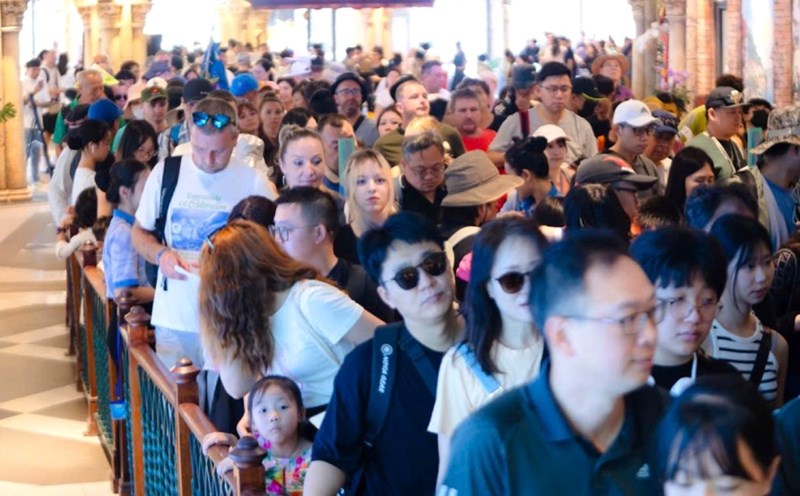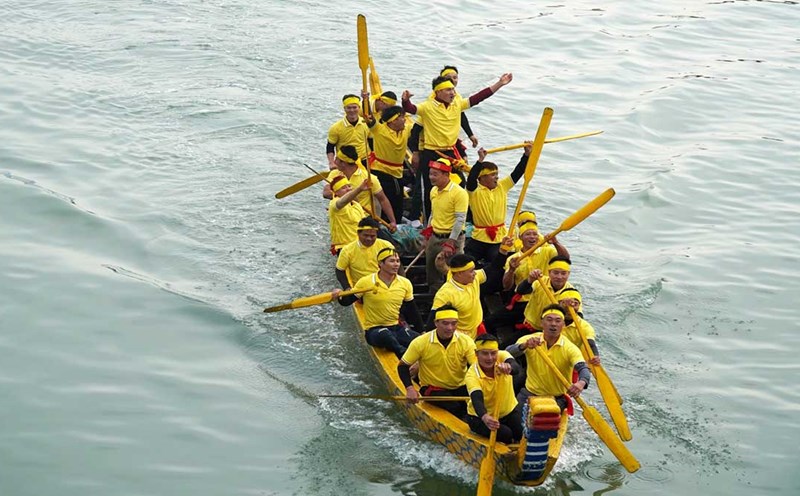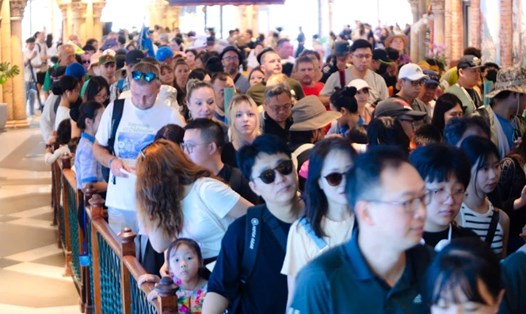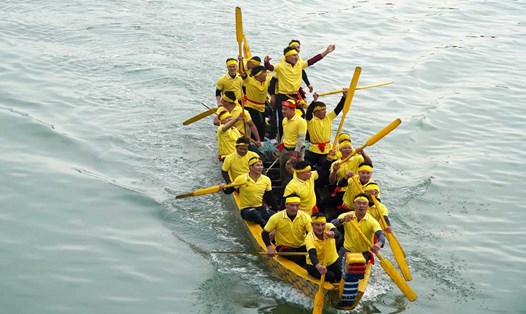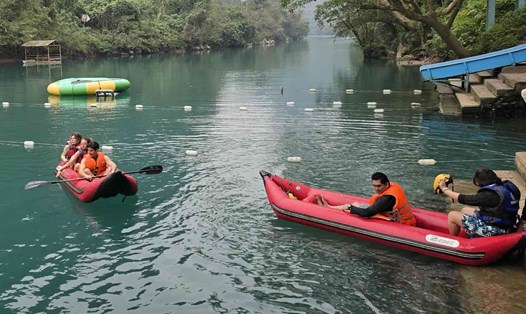Below are the most famous festivals in Vietnam during Tet, always attracting a large number of tourists from all over the world.
Dong Da Mound Festival
Dong Da Mound Festival, also known as "Victory Festival", is held to commemorate King Quang Trung's feats of arms against foreign invaders to save the country.
Dong Da Mound Festival usually takes place on the 5th day of the Lunar New Year every year, at Dong Da Cultural Park (Quang Trung Ward, Dong Da District, Hanoi) and always attracts a large number of visitors from near and far to participate and watch the exciting ceremony and festival.
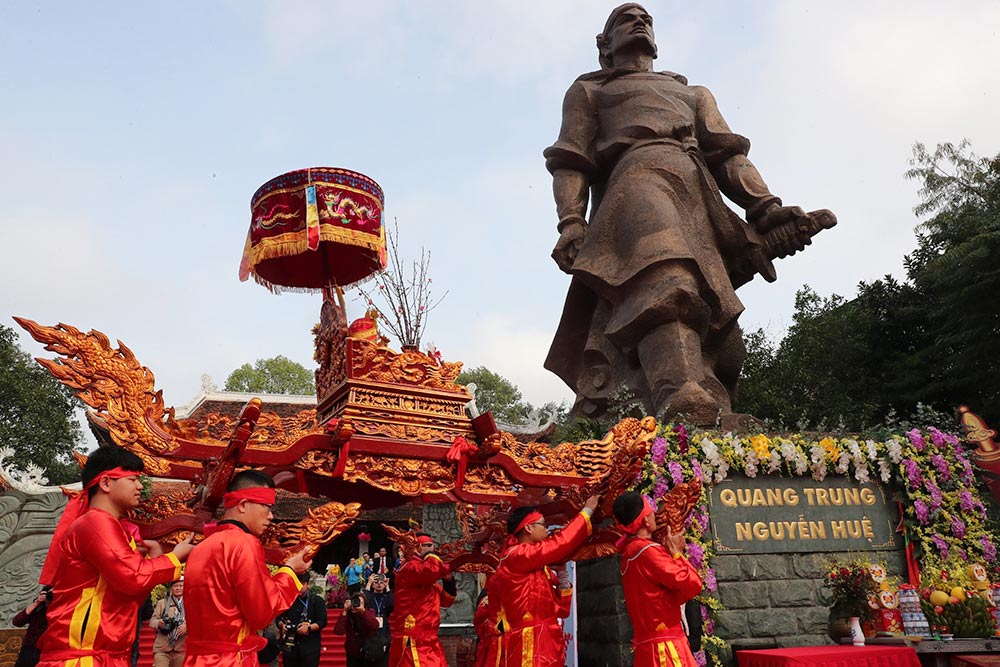
Dong Da Mound Festival takes place with many rituals and ceremonies. An indispensable ritual is the procession of the fire dragon, reenacting the heroic battle of the Tay Son army, defeating the Qing invaders. After the procession of the fire dragon is the incense offering ceremony, the reading ceremony and the prayer ceremony.
The festival will include activities such as visiting relics, offering incense, performing arts by the Vietnam Cai Luong Theatre and the Vietnam Tuong Theatre; human chess, Chinese chess, folk games, water puppetry, Quan Ho singing, Chau Van singing, etc.
The festival is related to historical and spiritual sites such as Khuong Thuong communal house, Boc pagoda, Dong Quang pagoda, and Dong Da mound.
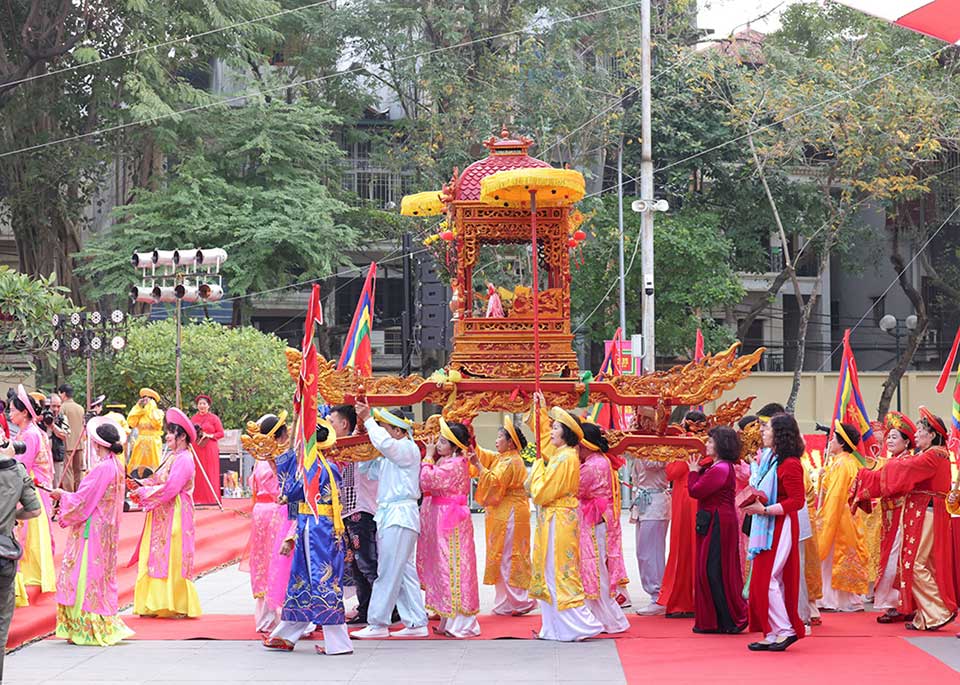
Huong Pagoda Festival - Journey to Buddha's land
Huong Pagoda Festival is one of the most unique and famous festivals in the Northern region in general and Hanoi in particular, likened to a "journey to the land of Buddha" and always receives the attention of a large number of tourists.
The festival is held at Huong Pagoda or Huong Son (My Duc district, Hanoi), a large cultural and religious complex in Vietnam with a system of Buddhist pagodas, temples and communal houses worshiping agricultural beliefs, lasting from the 6th of January to the 3rd lunar month, usually the most crowded from the 15th of January to the 18th of February of the lunar calendar.
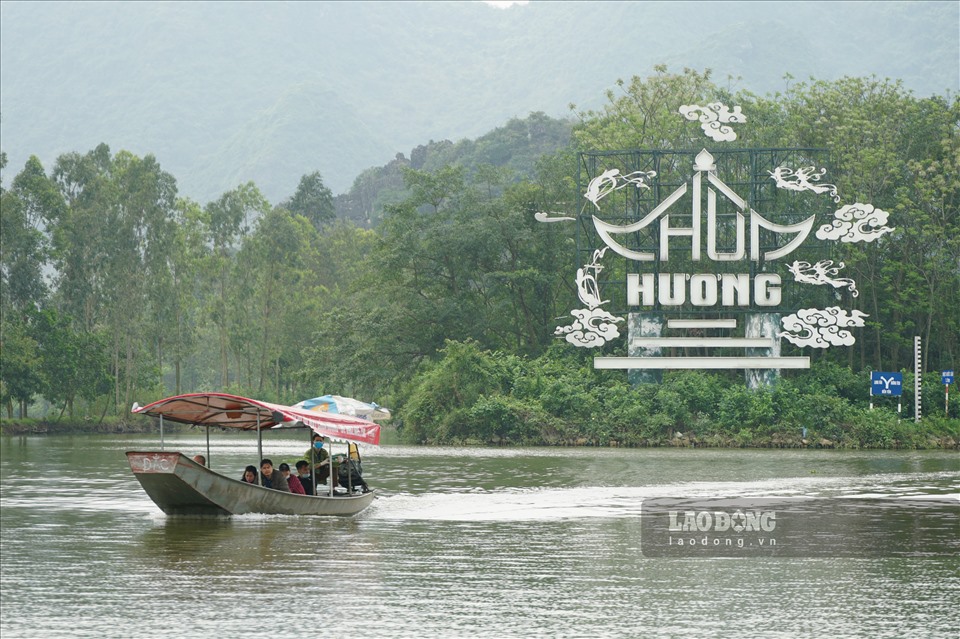
The Huong Pagoda Festival opens every year with a mountain opening ceremony. The meaning of this ceremony in the agricultural culture of the ancient Vietnamese is to thank the mountain gods, thank the lord of the forest and wish for a year of favorable weather, luck, and bountiful crops. Offerings include fruits, vegetarian food, lamps, candles and incense. Monks and nuns wearing cassocks will be responsible for performing the worship according to traditional rituals.
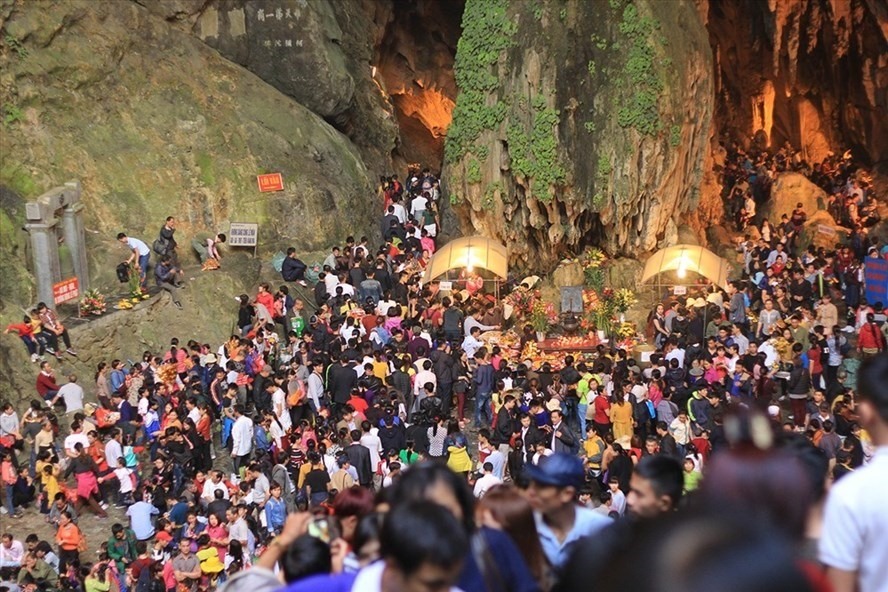
Huong Pagoda is not only a place to pray for good luck in the new year, but visitors can also immerse themselves in the vast natural space of mountains and forests. There is also a complex of famous tourist attractions such as Duc wharf, Yen stream, Trinh temple, Ngu Nhac mountain, Thien Tru pagoda, Huong Tich cave, Giai Oan stream, Cua Vong temple, Ca pagoda...
The festival part of Huong Pagoda festival is also very interesting and attracts a large number of tourists to participate with many cultural and entertainment activities taking place on the roads and villages of Huong Tich commune. Such as boating, mountain climbing, Chau Van singing, folk songs, Cheo singing, Xam singing...
Lim Festival - Quan Ho folk song festival
Lim Festival is the biggest festival in Bac Ninh, attracting tourists to visit and celebrate in early spring with special programs, listening to Quan Ho melodies and many folk games.
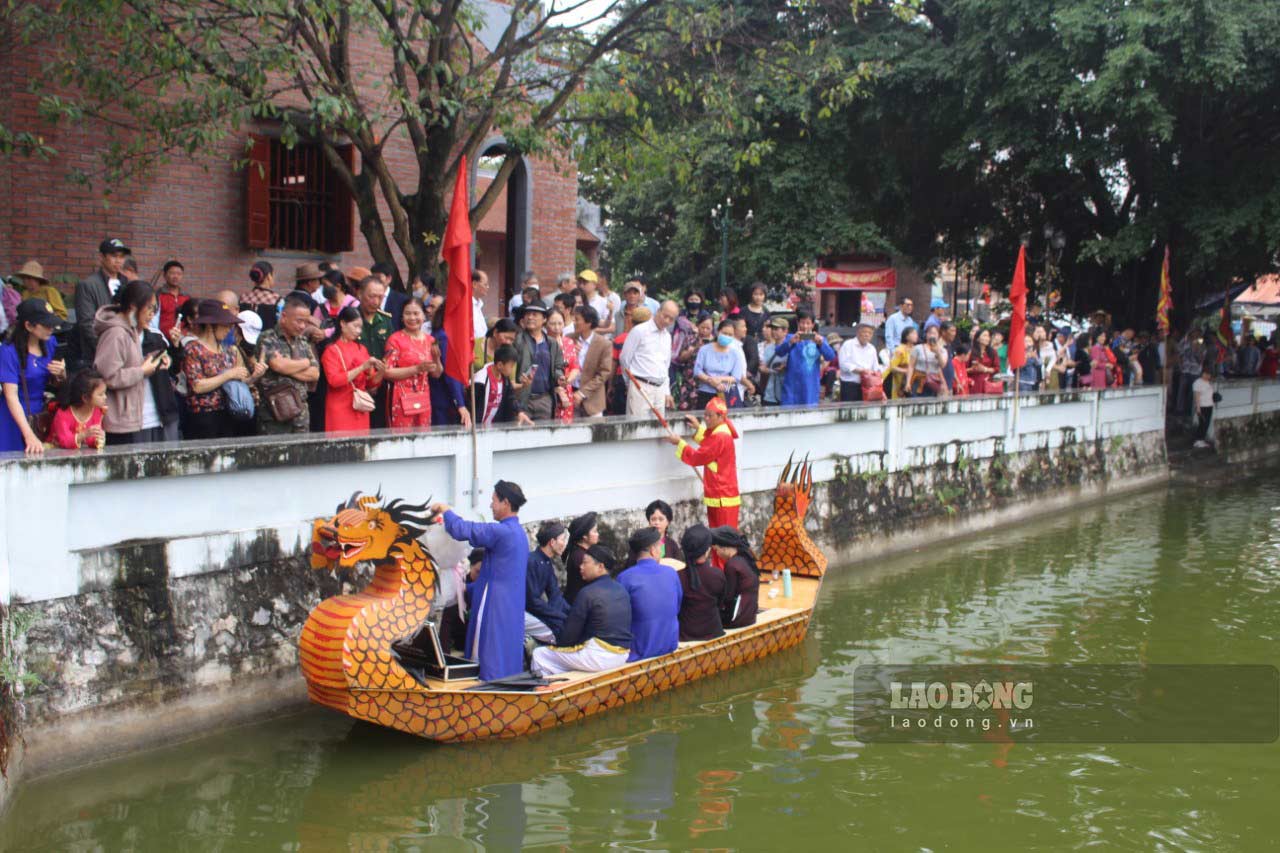
Lim Festival was still held and maintained throughout the 19th century and the first half of the 20th century. During the two resistance wars against French colonialism and the US to save the country, Lim Festival was not held for many decades until the years after the renovation. Lim Festival usually lasts for about 3 - 4 days (from the 12th to the 15th of the first lunar month every year). The 13th is the main festival with many activities including both the ceremony and the festival.
On the main festival day (January 13), there are rituals of procession and worship of the village's tutelary gods, the mausoleum of Duke Do Nguyen Thuy, the famous female martyrs of the homeland at Co Lung temple, Hong Van mausoleum, incense offering to Buddha, and worshiping the midwife at Hong An pagoda.
During the ceremony, there is a ritual of Quan Ho singing to worship the gods. To sing, the male and female Quan Ho groups of Noi Due stand in a row in front of the mausoleum and sing. While singing, they only sing in traditional tones to praise the gods' merits.
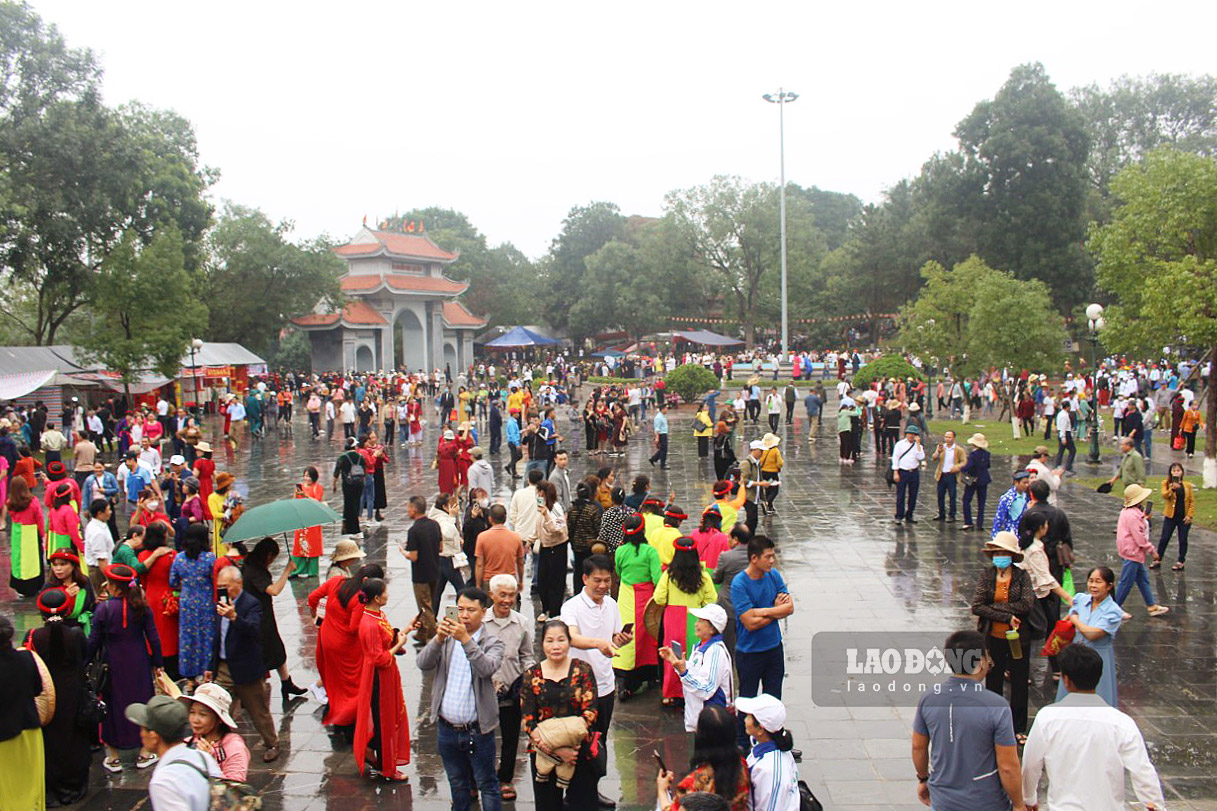
In addition to the ceremony, the festival also has many folk games such as wrestling, martial arts, chess, weaving, cooking, swinging, etc. and the most special part is the festival singing. Coming to Lim festival, people and tourists not only immerse themselves in the space of poetry and music but also experience the unique way of playing Quan Ho festival such as cockfighting, swinging, smashing pots... Human chess - an intellectual game in which students act as chess pieces, attracts many tourists.
Yen Tu Festival - Spring in Buddha's land
Yen Tu Festival is a unique festival imbued with Vietnamese culture, held at Yen Tu Mountain, the sacred mountain of the Quang Ninh mining region. Yen Tu Festival attracts tens of thousands of visitors from all over the world at the beginning of each year.
There is a folk song that says: "A hundred years of accumulating virtue and practicing. If you have not been to Yen Tu, you have not achieved the results of your practice." This place was the Buddhist center of Dai Viet in the past, the birthplace of the Truc Lam Zen sect.
The festival takes place during the three months of spring, from the 10th day of the first lunar month until the end of March. This is the time when many tourists and Buddhists come to burn incense to pray for a peaceful and smooth new year. The rituals show respect as well as gratitude to the Buddhist Emperor Tran Nhan Tong, who founded the Truc Lam Zen Sect.
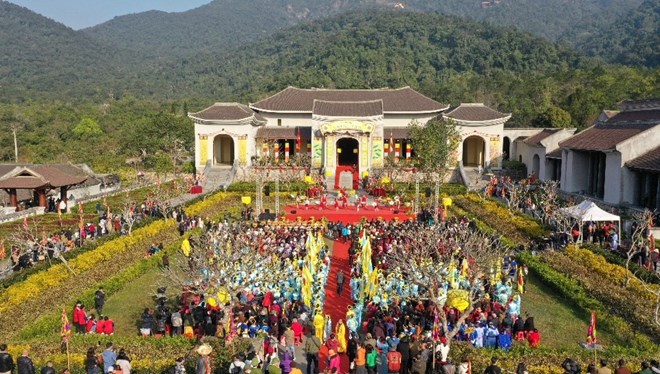
In addition to participating in the solemn rituals of the festival, visitors will join the pilgrimage of tens of thousands of people to Dong Pagoda on the top of the mountain. The road up here is quite bumpy, winding, shaded by the shade of large ancient trees and with misty smoke, as if entering the Buddha's realm.
Tourists can also visit the Yen Tu Festival Center, go up the mountain to worship Buddha, the pilgrimage village or participate in extremely impressive folk games such as: throwing con, tug of war, cockfighting, Yen Tu chess tournament... Or enjoy unique performances such as: Traditional art at the Yen Tu pilgrimage village communal house area, traditional martial arts, dragon dance art.
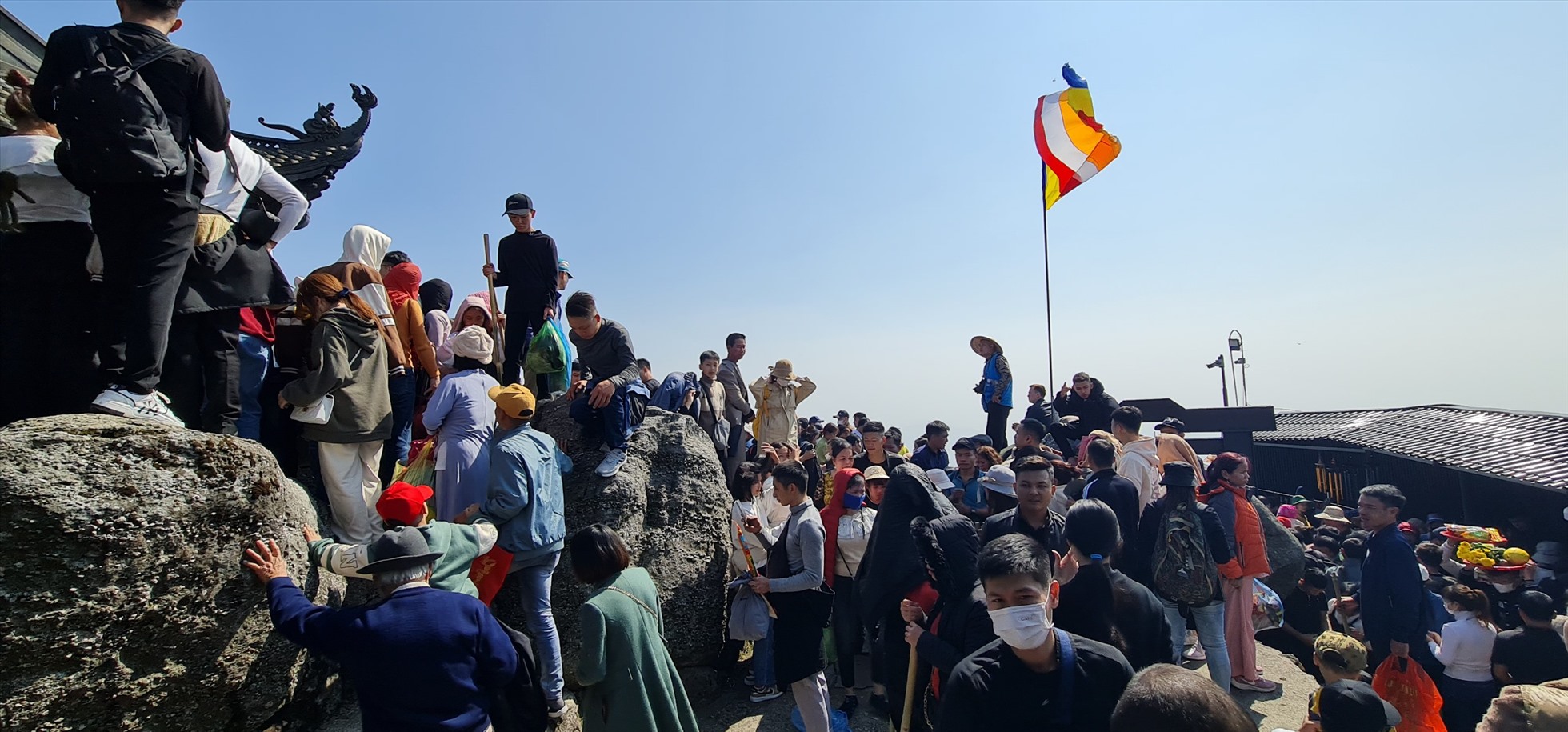
Tran Temple Seal Opening Festival - "Infinite blessings"
The Tran Temple Seal Opening Festival in Nam Dinh is one of the most famous festivals in Northern Vietnam, held in early spring every year to preserve and promote cultural values, educate the tradition of patriotism against foreign invaders, commemorate the merits of our ancestors, and remember the great contributions of the Tran Dynasty in building the country, reclaiming the sea, and expanding the territory with the bright spirit of Dong A.
The Seal Opening Festival is usually held from January 11 to 16 at Tran Temple, Loc Vuong Ward (Nam Dinh City) as an ancient custom at the Tran Dynasty's Tien Mieu (formerly Thien Truong Palace). The Tran Temple Seal Opening Ceremony is held with the humanistic meaning of praying for national peace and prosperity, favorable weather, everyone enjoying the seal's blessings, and accumulating boundless blessings.
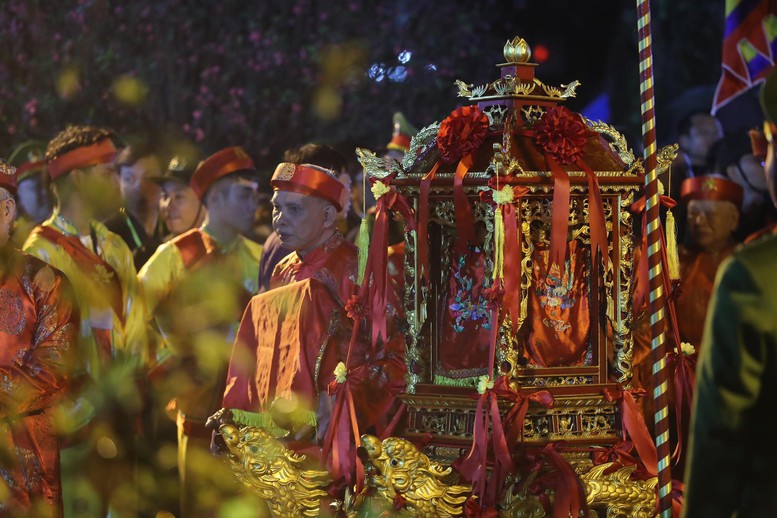
During the entire Tran Temple Seal Opening Festival, the seal opening ceremony (night of January 14) is an important traditional ceremony imbued with cultural, religious and spiritual values, including the following activities: Incense offering ceremony (from 10:15 p.m. to 10:40 p.m.); the procession of the seal from Co Trach Temple to Thien Truong Temple (from 10:40 p.m. to 11:10 p.m.); the seal opening ceremony and offering of congratulatory messages (11:15 p.m. - Hour of the Rat).
Then, from 5am, the distribution of seals to people and tourists will be held at 3 locations: Giai Vu House, Exhibition House and Trung Hoa Temple. On January 16, the Shang Yuan Festival will be held, the ancestors of the Tran Dynasty will be worshiped and the offering of congratulatory documents will be performed.
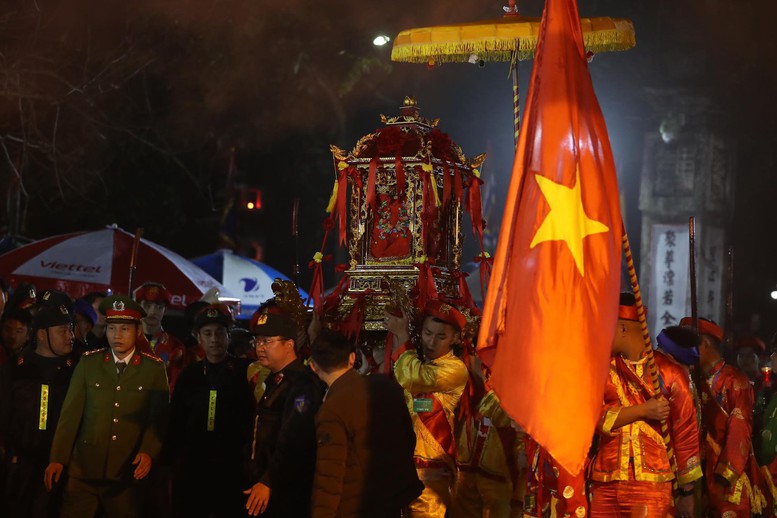
Besides the ceremony, the festival also includes many exciting cultural, artistic and sports activities such as: drum performance; playing chess; tom diem; lion - lion - dragon dance; kite flying; Cheo singing; Van singing; Xam singing; water puppetry; martial arts performances, wrestling competitions; art programs; bonsai exhibition; exhibition "Thien Truong Palace - Golden Imprint", exhibition "Beautiful photos of Nam Dinh tourism".
Hung Temple Festival - Hung King's death anniversary
Hung Temple Festival or Hung King's Death Anniversary is a traditional ceremony taking place from the 1st to the 10th of the 3rd lunar month every year at Hung Temple, Viet Tri City, Phu Tho Province.
This is a great festival to commemorate and express gratitude for the founding of the country by the Hung Kings, the first kings of the nation. The worship of Hung Kings has been listed as a national intangible cultural heritage by the Ministry of Culture, Sports and Tourism of Vietnam and recognized by UNESCO as a representative intangible cultural heritage of humanity.
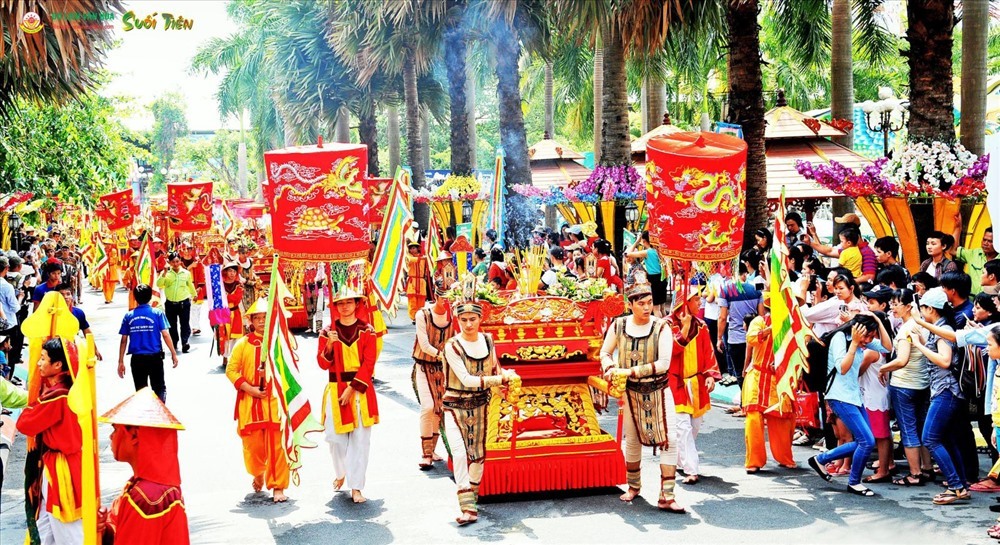
The ceremony of the Hung Kings' Commemoration Ceremony is held solemnly, respectfully, ensuring security, civilization and economy. At the beginning of the ceremony, when the music of the octagonal orchestra begins, the celebrant will read a prayer before the Hung Kings' altar. Each reading will end with a drum and gong signal.
After that, the procession moves forward to the front hall, performs the ritual of kneeling and then retreats. When participating in the ceremony, visitors will admire the brilliant image of the red-lacquered and gilded palanquins, flags, umbrellas carried by young men and women in the village.
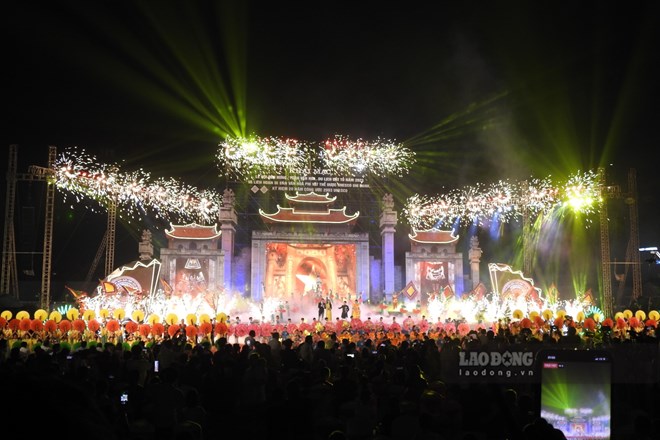
The festival part of the Hung Kings' Commemoration Ceremony is closely linked with tourism, forming a series of activities of the Cultural - Tourism Week of the Ancestral Land, including main activities: visiting works, publications, and documents about the Hung Kings; experiencing interesting games (competition of wrapping banh chung, pounding banh giay, rowing, volleyball); enjoying special folk cultural performances...

